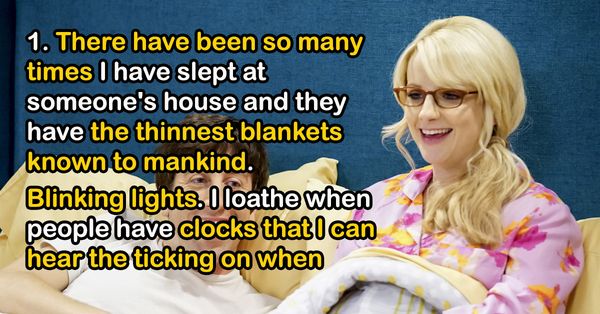October, 1999, LOS ANGELES — It felt like déjà vu, and I didn't like it at all. In September, I participated in a press conference in Los Angeles and a U.S. Justice Department symposium in Washington, D.C. The topic at both events -- minorities on television.
For decades, television network executives have been making ringing proclamations of their responsibility to reflect the great diversity of America. When called to task for their failings, they always asserted that they would do better the next season. But without a trace of embarrassment, the four top networks, CBS, NBC, ABC and Fox, revealed a slate of 26 new shows for the 1999-2000 season in which all the lead roles and all the regular supporting roles are white. Bluntly put, they are presenting a version of America that is a bald-faced lie. I call it a white-faced lie. Look around any American city and one can clearly see that ours is a multi ethnic, multi racial, multi cultural society. What makes us unique among nations is the fact that Americans are the only people in the world who do not share a common gene pool.
Television plays an awesomely important role in race relations. It shapes and forms perceptions and attitudes about the people with whom we live. Used constructively, television can be a vital element in building a healthy society of diverse people. Used irresponsibly, it can divide and inflame.
Asian Americans are keenly aware of this power of television. The portrayal of Asian Americans in one-dimensional stereotypes, or, even worse, our absence from television, underscores the view of Asian Americans as not truly American. No matter how many generations we have been here, Asian Americans still are seen merely as extraordinarily Americanized foreigners. Whether in news coverage or entertainment programming, this kind of simplistic portrayal strips us of our variety and complexity and reduces us to just the "other." Thus, the suspected transgression of an individual Asian American casts a veil of suspicion on all Asian Americans. Asian American scientists are viewed with suspicion as possible spies for foreign nations. Our political contributions are questioned with no basis other than our Asian surnames. Over half a century ago, because this country couldn't recognize the distinction between Americans of Japanese ancestry and the Imperial Japanese government, all Japanese Americans on the West Coast were incarcerated in American concentration camps during World War II.
In offering a slate of new shows void of minorities, the four networks are reinforcing a dangerous fantasy — the fantasy that America is a white nation. This vision feeds directly into the delusions of white supremacists. It sustains their racist notion that minorities don't belong in America and need to be eliminated. In the last few months, three Asians have been killed in hate crimes in Illinois, Indiana and, most recently, here in my hometown of Los Angeles. Do the television decision-makers think they are not in any way connected to these troubles?
How can television have sunk so low since those halcyon years of Star Trek more than three decades ago? Star Trek creator Gene Roddenberry believed in the credo, "strength in our pluralism." He envisioned the Starship Enterprise as a metaphor for starship earth in all its great diversity. The crew of the Enterprise reflected the composition of the many people that inhabit this planet working in concert. Roddenberry created a show that resonated with the television viewing audience, not only in this country, but all over the world. And the show has engaged the imagination of this global audience for more than thirty-three years. If television is an imitative medium, then there could be no better model for television executives to imitate than the vision of Gene Roddenberry. Let's go back to the future.
Scientists Have Developed A New 'Planetary Health Diet' That Could Literally Save Lives And The Planet At The Same Time

In an attempt to help curb worldwide issues such as climate change, and malnutrition in poverty stricken areas, a joint commission by EAT, a non-profit seeking to transform the global food system, and The Lancet, an old and respected medical journal, has released a recommended guideline for dietary and planetary health.
The report recommends cutting back meat consumption to at most, a burger patty or equivalent a week, and supplementing your protein intake with nuts, legumes, and beans. An increase in veggies and fruits would make up the bulk of your meal plate.
The dietary guideline was established by a coalition of over 30 scientists, researchers, and doctors designed not just with human nutrition in mind, but also sustainability. With estimations that the planet will reach 10 billion people by 2050, scientists are working to figure out how to feed them all.
Additionally, the red meat industry has for a long time, been known to be a contributor to greenhouse gasses, while land conversion for food production is the greatest factor in biodiversity loss. The report from the EAT-Lance commission estimates that through nutrition and agricultural changes from this diet, we can save 11 million lives every year.
That sounds pretty great.
The EAT-Lancet commission lists very specific macronutrient ranges for their proposed diet, from 300g of veggies per day, to only 7g for red meats. However, it's this specificity that is drawing criticism.
John Ioannidis, the chair of disease prevention at Stanford university has praised the growing attention to how diets can affect the environment, but states the commission doesn't represent the scientific uncertainty between health and nutrition.
Dr. Georgia Ede, who writes for the site Diagnosis: Diet, took issue with the report's specific recommendations. Dr. Ede's website makes the case for low carb and paleolithic diets.
She points out the commission says,
"We have a high level of scientific certainty about the overall direction and magnitude of associations described in this Commission, although considerable uncertainty exists around detailed quantifications."
And yet, they recommend 0 to 58g per day of poultry, with a 29g midpoint. This seems very specific.
People are not willing to give up meat so easily.
Still, the report is a good starting point for the discussion we need to have about food's connection to not just our health, but the planet's well-being.
As Dr. Howard Frumklin, head of the Wellcome Trust which helped found the EAT foundation says himself,
"The links among diet, health and the environment are well-documented, but, until now, the challenge of attaining healthy diets from a sustainable food system has been hampered by a lack of science-based guidelines.
"While this report does not have all the answers, it provides governments, producers and individuals with an evidence-based starting point to work together to transform our food systems and cultures."
What should be a discussion is turning into an argument.
If we're going to be able to feed everyone, ensure their diet is nutritionally balanced, and try to curb climate change, it's important that people start talking about the positives and negatives of their current diet. The report provides a sense of context to which people can compare and share their ideas and study.
People Are Roasting Trump Over His Mind-Numbing Observation About The Wetness Of Water 😂
Donald Trump thanked the first responders who came to the aid of victims of Hurricane Florence. The storm devastated portions of North Carolina, dumping massive amounts of rain and damaging millions of dollars in property. Many natural areas were destroyed, some farmers lost everything and more than a few people have been left homeless. The first responders after this massive storm were literal life savers, and Trump was absolutely right to thank them. Unfortunately, the sentiment of his message was lost for many people because he didn't seem to put any effort or preparation into what he was saying. Then, in the middle of his off-the-cuff message, he confused everyone by talking about the wetness of water.
As Trump described the storm and the importance of first responders he told the world:
This is a tough hurricane, one of the wettest we've ever seen from the standpoint of water. Rarely have we had an experience like it and it certainly is not good.
The Tweet went out in the middle of the day on Tuesday, September 18th. At the time of this article, it hasn't even been up for 24 hours and already has over 13,000 comments. Many of them pointed out how Trump didn't even seem to try...
and how asinine his description was.
We don't know if Trump will continue to address the public by releasing these kinds of videos, or if they will continue to be as unrehearsed as this one is. We assure you, if they are, Twitter will have plenty to say about it.
H/T: Huffington Post, Twitter
Michael C. Hall Is Starring In A One-Night-Only Broadway Musical About Skittles—And No, We're Not Making This Up

Super Bowl Sunday: it's the only time when commercials are more popular than the show they interrupt. However, this year's best ad might not even be on TV.
Funny, irreverent, and sometimes controversial, Super Bowl ads have become as much of an event as the big game itself. Even those who don't watch football will tune in and watch as brands fight it out for the most talked about commercial of the year.
For advertisers though, getting your ad in front of one of the largest television audiences out there doesn't come cheap. A 30-second spot for this year could cost up to $5 million!
Candy maker Skittles decided to skip the Super Bowl and head for Broadway. For one-night-only, Skittles The Musical will appear on Broadway starring everyone's favorite serial killer, Dexter actor Michael C. Hall. No, we're not kidding.
The concept has so many people scratching their heads that Skittles needed to make another ad just to explain it.
Skittles The Musical ))) Starring Michael C. Hallwww.youtube.com
Anxious over appearing in the musical Hall sits down with a therapist, who like the rest of us is not exactly sure what it is. Hall explains the 30 minute advertisement is a real musical, you even have to buy tickets to go see it.
At one point Skittles even takes a self-deprecating jab at themselves and Hall, implying the musical is a terrible career decision.
After all, who is going to pay $207 a ticket to go see a 30 minute advertisement for Skittles?
A whole lot of people apparently
Tickets to the performance at the Town Hall theater in New York are almost sold out. People may not know what's going on, but they are ready to taste the rainbow.
@Skittles I’m ready! Purchased my tickets #SkittlesTheMusical— Corey (@Corey) 1548091647.0
@playbill @Skittles https://t.co/uo9aLkDV2f— robbie. (@robbie.) 1548135341.0
@playbill @Skittles My mind is blown and my heart is warmed. How fun! “Broadway the rainbow” indeed ❤️🧡💛💚💙💜— Allison Wonderland (@Allison Wonderland) 1548185407.0
If someone takes me to see skittles the musical I'll love them forever.— ☆Bambi☆ (@☆Bambi☆) 1548218569.0
On its surface Skittles The Musical may just look like an over the top gag from a brand known for its unusual marketing, but Skittles recruited some serious Broadway talent to put it together including playwright Will Eno and a cast straight from some of the biggest shows on Broadway.
According to Skittles the show will take "an absurdly self-reflective look at consumerism and the ever-increasing pervasiveness of brand advertising in our lives."
And if that wasn't enough Skittles will also be donating all the proceeds from the show to Broadway Cares/Equity Fights AIDS. Skittles parent company will match that donation up to $50,000. You had our attention Skittles, now you have our interest.
Wait so rather than spend a bucket load of 💰to take out a 30sec ad during the SuperBowl, @Skittles will present a L… https://t.co/OVnNQfQ506— Christopher D. Clegg (@Christopher D. Clegg) 1548096836.0
@cadimy @playbill @Skittles If you read the article, it addresses that they're doing a short show in lieu of a supe… https://t.co/3Hxm2lNLyI— a dope ghost (@a dope ghost) 1548094203.0
@lnternetqueer @playbill @Skittles well that's quite neat!— 🦇 (@🦇) 1548094980.0
There is no telling how a commercial/Broadway musical from the bizarre minds over at Skittles will turn out, but it's guaranteed to be an performace like Broadway has never seen before.
The Kids From 'Stranger Things' Wrapped Presents For Superfans—And Did A Delightfully Terrible Job 😂
When it comes to giving gifts, not all celebrities are as crafty as Taylor Swift, but that didn't stop the adorable stars of Netflix's Stranger Things from giving it a try.
In a recently released video from Netflix, actors Millie, Finn, Noah, Caleb, Gaten, and Sadie got together for some holiday cheer and to wrap gifts for fans. But kids will be kids, even if they star in a hit television show. Watch as chaos ensues.
Fans loved every moment, even if the kids weren't the greatest wrappers.
@Stranger_Things I love seeing them mess around with each other.— Abby! (@Abby!) 1545318707.0
@doublejoywilson https://t.co/qgFgkZpTxQ— Stranger Things (@Stranger Things) 1545318849.0
@realrevella https://t.co/G5Er8pydg5— Stranger Things (@Stranger Things) 1545318801.0
@themallratss we do what we can https://t.co/POBMVbXfZS— Stranger Things (@Stranger Things) 1545319099.0
@Stranger_Things They’re a cute mess 😂— Janet ⁷✜🪐 (@Janet ⁷✜🪐) 1545318854.0
@minseokjin94 https://t.co/Dr4Y4xFYyM— Stranger Things (@Stranger Things) 1545318939.0
@Stranger_Things Thanks for the gif...they’re a MESS mess https://t.co/cG5ODdPDf0— Janet ⁷✜🪐 (@Janet ⁷✜🪐) 1545319571.0
@pvladins AH THE SOUND OF HOLIDAY CHEER— Stranger Things (@Stranger Things) 1545318737.0
@Stranger_Things HAPPY HOLYDAYS TO THE DEMOGORGON https://t.co/BpB1ZixUK5— 𝑣𝑎𝑙 ⚯͛ (@𝑣𝑎𝑙 ⚯͛) 1545318680.0
@edwardistheman @netflix ok here https://t.co/UwOLIa1T1C— Stranger Things (@Stranger Things) 1545318880.0
We just can't get enough of these talented kids!













